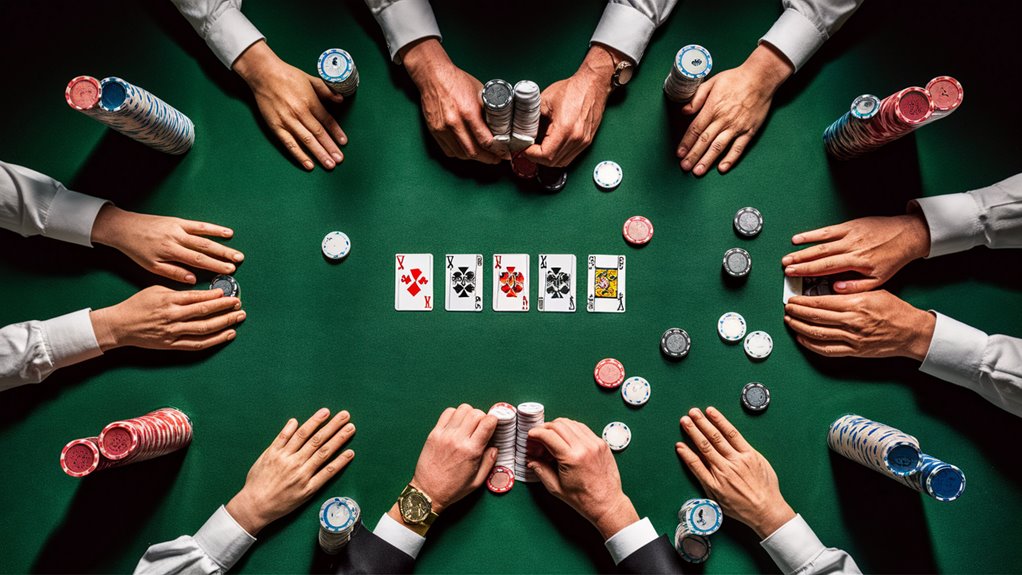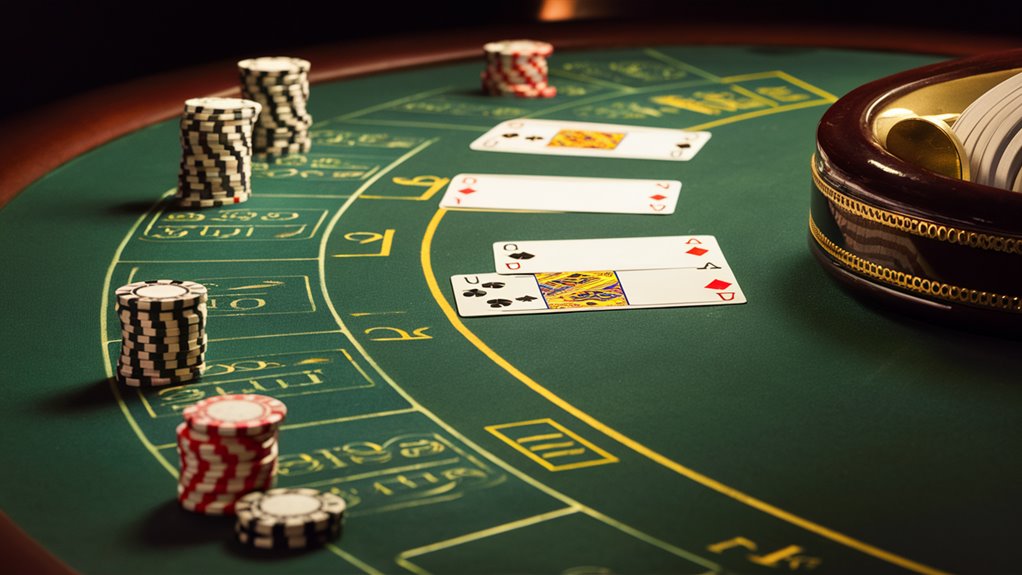Relations Between Mental Illness and The Gambling Sphere
Mental health and addiction to gambling share a subtle and reciprocal relationship that affects one’s psychological well-being. Problematic gambling habits can both spring from mental health problems as well as add to them, setting up a vicious cycle for the sufferer.
Mental Health Statistics on Gambling
Research shows that depression and anxiety are three times as prevalent among problem gamblers as it normally is within the wider population. ADHD sufferers are at four times greater risk of ending up with a gambling problem. These statistics underline how effectively psychological conditions and wagering activities intersect.
Neurological Changes in Brain Function Due to Addiction Patterns
In gambling addiction the brain undergoes noticeable changes that are similar to those seen in the brain of a person with a substance use disorder. Dopamine regulation will be disturbed, leading to:
- Failure to exercise judgment
- Failure to appreciate rewards
- Inability to control impulses
- Inability to assess risk
Warning Signs of Incipient Problems and Their Treatments
Key Indicators
- Increasing amount of time devoted to gambling activities
- Changing mood patterns significantly
- Burgeoning financial distress
- Being drawn away from social contacts
Evidence-Based Treatment Approaches
Cognitive-behavioral therapy is the mainstay of “best Striking With Coiled Force at Critical Table Moments practices” treatment methodologies. Working hand-in-hand with practical support groups, it has a recovery rate of 60%.
Prevention and Recovery Strategies
Professional counseling and support networks, even people through specialized channels, can serve as roads leading how to go about getting treatment delivered when necessary. To spot those areas at risk early on and to guide those who are just beginning down this road into some suitable form of help means using this interconnection one’s own advantage.
Understanding Addictive Gambling Behavior
Understanding Addictive Gambling Behavior: An In-Depth Overview
The Psychology of Pathological Gamblers
Pretty soon, as can be seen in any addiction, problem gamblers display very distinct patterns of behavior leading them into a vicious circle where they continue to bet despite getting hurt.
Typical signs of betting-related addiction are:
- Spending too much time and/or money on betting activities
- Repeatedly trying to cover your losses
- Deception about your betting
- Specific borrowing in order to bet
Neurological Changes in Brain Function and Brain Chemistry
Furthermore, the mechanics of the brain’s reward center are similar in gambling and substance addiction. This is marked neurologically:
Dopamine released when making a bet creates a very strong urge that:
- Governs the normal logic of choice
- Becomes a regular kind of behavior
- Reduces normal reactions to reward
- Makes you more and more addicted to gambling
Diagnosing and Using Risk Factors
Indicators In Problem Gambling
Clinically, a gambling disorder shows through more than one diagnostic sign:
- The subject is constantly pre-occupied with betting
- Their bids to exercise self-control over betting are doomed to failure
- They deploy gambling to cope with negative emotions
- Family relationships are ruined by gambling habits
Risk Spectrum Analysis
Betting behavior is spread along a spectrum from casual (or healthy) entertainment to chronic disease spectrum, called “treatment spectrum.” Learning about this can:
- Make early detection of abnormalities easier
- Accurately target recovery techniques
- Increase the effectiveness of treatment
To progress to a problem gambler from being recreational needs professional assessment and for the best chances, specialized treatment protocols.

Mental Health Risk Factors in Problem Gambling
The Connection Between Mental and Gambling
Special characteristics of mental health kinds of conditions Gathering Age-Old Tactics for Swift, Modern Wins represent the sensitization aspects of problem gambling behavior.
- Depression, anxiety, and bipolar disease could cause people to add more than they can afford at slots or other gambling devices when high on drugs, which they took in order “get ahead,” thus permitting themselves gambling as an unhealthy response rather than just another thing to enjoy.
- ADHD increasingly correlates with risky behaviors: impulsivity and reward hunts are typical for this.
Coexisting Disorders and Gambling Risk
Gambling disorders often accompany drug addicts’ lifestyle habits, creating more addiction routines that mutually reinforce one another. The term is part of a series looking from drug addiction (of any substance) to social gambling.
People suffering from Post-Traumatic Stress Disorder are known to consume drink in order to control their feelings, which they cannot otherwise because of stress and/or insomnia coming directly from subconscious level programs. Persons with antisocial personality disorder (psychopathy) undoubtedly have difficulties related to control their own behavior.
Stress and Executive Function
Stress-related disorders can substantially affect executive functioning and resistance to the development of problem gambling patterns.
While pre-existing mental health problems do not necessarily lead to gambling issues, they create more opportunities for vulnerability.
The relationship runs in two ways, such that mental health disorders can provoke gambling problems, while gambling disorders make existing mental health difficulties more serious yet again.
Key Risk Factors
- Depression and anxiety disorders
- Substance abuse and addiction
- ADHD, impulse control difficulties
- PTSD, trauma-related problems
- Personality disorders
- Stress-caused and other related mental health challenges
Signs of Gambling Addiction: A Comprehensive Guide
Behavioral Warning Signs
There are great differences in conduct patterns, which are important indications of someone in danger gambling.
Such signals include deceit over gambling activities and a habit of always increasing bet sizes to try and make up losses. They also include devoting traceless amounts of time to gambling while life’s duties are virtually neglected.
Emotional and Psychological Indicators
A person with a gambling addiction typically shows significant mood changes. When trying to work off debt, for instance, he is apt to show great irritability Converting Gentle Clues Into House-Topping Waves and display it over long periods of time.
Psychologically, it begins to show itself as:
- Perennial meditations on gambling activities in the past
- Preoccupied plans about betting in future
- No change of subject relieves the focus on thoughts related to gambling in any way at all
Financial Red Flags
Problem gambling behavior often carries serious financial repercussions, such as:
- Unauthorized forms of borrowing from friends or family
- Selling personal items to finance gambling interests
- Committing illegal acts in order to procure money for gambling
- Money matters shrouded in a darkness of closed-door, off-the-record transactions
Physical Manifestations
The toll of a victimizing gambling addiction can also find its way into the body by:
- Changes in sleep patterns
- Changes in eating schemes
- Anxiety at the discontinuation of gambling access
- When trying to cut down their gambling activity, withdrawal symptoms
Social Impact and Relationships
At the last stage of pathological gambling problems, social contacts are often hit by:
- Withdrawal from personal relationships
- Increasing isolation
- Several failed attempts to get over it
- Defensive actions to deny when challenged on gambling habits arises
Interventions are needed by more than one professional, since recovery from gambling addiction quite typically involves a substantial assistance and treatment program.
Treatment Options and Support
Evidence-Based Ways of Treating Gambling Addiction
After examination notes from the day’s work with patients suffering from gambling problems, we ended Narrative Exposure Therapy with an exercise in personal narrative storytelling.
Cognitive-behavioral therapy, the most effective way of treatment for gambling addiction, enables individuals to identify and change problematic gambling behaviors as well as their thinking patterns.
Motivational Interviewing Techniques help people commit more to their recovery programs by providing opportunities through therapeutic conversations to strengthen that commitment and actually facilitate the lasting change in behavioral patterns required after addicted behavior has been given up.
Drug Baiting Procedures
For pathological gambling, partially where there is drug abuse as well as psychiatric disorders, treatment has a vital link in medication. 토토검증업체
It is common for people in withdrawal to use antidepressants and mood stabilizers as they help with the mental health factors underneath gambling addiction; this improves overall treatment results.
Support Systems and Group Therapy
Gamblers Anonymous and other mutual support groups are the foundation of true public health (community-based) recovery programs with a specific focus on the spiritual dimension that goes straight back to some Christian elements in 12-step programs.
Rounding off the subject of group therapy, we would like to add that sharing experiences with other participants is one of those old-fashioned activities by which new truths arise. In this neighborly atmosphere, participants can show each other what they are proud or ashamed of and discuss everyone’s different. These sessions take 2-3 hours and are held weekly.
Solutions to Financial Difficulty
Financial counseling is essential in a comprehensive treatment program for gambling addiction.
Professional advisors aid clients in developing structured repayment plans, instigating sound money management techniques and policy changes to address the economic impact of gambling behavior. These services rebuild economic stability while also preventing triggers for relapse.
Comprehensive Treatment Centers
Residential treatment facilities are a multitreatment environment which is suitable for patients with serious gambling problems. Their programs and therapy strategies include the following:
- The design of a structured daily life.
- Individual counseling sessions to assess patients’ problems thoroughly and account for differences among people in the same type of malady.
- Group therapy meetings looking at gambling addiction within larger human contexts where solutions can be found. This provides an educational social environment, although we emphasize “therapeutic” here since this way of gathering people together works better when participants are encouraged not only to play an active role but also ease and comfort one another while working under or near the wheel from time to time.
- Financial management coaching services which include business-sense skills training are part of the in-house courses that patients take once they arrive at their new home here for help and recuperation away from external influences such as love and hate, friends or family members with their own ideas on how things should proceed.
- Treatment according to patient needs makes sure that each individual gets the right treatments based on the state of addiction, personal conditions and goals for recovery.
Set strict monthly and daily spending limits.
Limit funds.
Transfer money management power to trusted family members.
Close credit cards and freeze bank accounts.
All bank transactions are monitored closely with dedicated software tools.
Design Your Recovery Framework
Recovery support systems offer significant and lasting contributions:
- Among peers who are also in recovery
- Professional advice from addiction specialists
- Having others who can provide social support and track your progress
- Membership in social groups and support networks with peers
- Quality family therapy
Managing Triggers & Establishing Coping Strategies
Develop prevention strategies aimed at specific triggers:
- Identify individual gambling triggers.
- Find new routes to avoid gambling venues.
- Tackle stress management.
- Bring your attention to mindfulness and meditation.
- Establish regular physical exercise as part of your schedule.
- Develop strong social networks.
Sustaining Recovery Techniques
Maintain sustained recovery by:
- Daily recovery journaling
- Marking milestones in tape
- Connect with support groups on a regular basis
- Embark on new hobbies or interests
- Plan for when you feel tempted by a maturing addiction
- Always seek deeper knowledge of addiction


